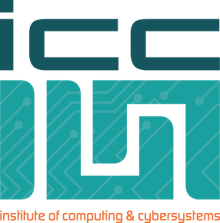
Dr. Timothy Havens, College of Computing, and Dr. Anthony Pinar, Electrical and Computer Engineering, have been awarded a two-year, $428,707 project by the SOSSEC Inc. / U.S. Army ERDC to investigate “Modeling and Algorithm Development for Adaptive Adversarial AI for Complex Autonomy.”
The project will study how autonomous systems operate in complex and unstructured environments, focusing on sensing, processing, and decision-making capabilities.
Havens and Pinar are members of the Institute of Computing and Cybersystem’s Center for Data Sciences.
Tim Havens is associate dean for research, College of Computing, the William and Gloria Jackson Associate Professor of Computer Systems, and director of the Institute of Computing and Cybersystems.
Tony Pinar is a lecturer and senior design coordinator in the Electrical and Computer Engineering department.
The SOSSEC Consortium was specifically formed to address the needs of the Department of Defense (DoD). It was founded on a simple concept: that collaboration, innovation, and cooperation among a broad spectrum of industry, academia and non-profit entities vastly improves the products and services delivered to its clients, according to the organization’s website.
The mission of the US Army Engineer Research and Development Center (ERDC), an integral component of the Office of the Assistant Secretary of Defense for Research and Engineering, is to help solve the nation’s most challenging problems in civil and military engineering, geospatial sciences, water resources, and environmental sciences for the benefit of the Army, the Department of Defense, civilian agencies, and the public good, according to the organizations’s website.

The Institute of Computing and Cyberersystems (ICC) promotes collaborative, cross-disciplinary research and learning experiences through six research centers in the areas of computing education, cyber-physical systems, cybersecurity, data sciences, human-centered computing, and scalable architectures and systems, for the benefit of Michigan Technological University and society at large.
The ICC’s 55 members represent more than 20 academic disciplines at Michigan Tech. Member scientists are collaborating to conduct impactful research, make valuable contributions in the field of computing, and solve problems of critical national importance.

ICC’s Center for Data Sciences (DataS) focuses on the research of data sciences education, algorithms, mathematics, and applications. DataS fosters interdisciplinary collaborations by bringing together diverse faculty and students from varied disciplines to discover new knowledge and exciting research opportunities in the field of data sciences.
